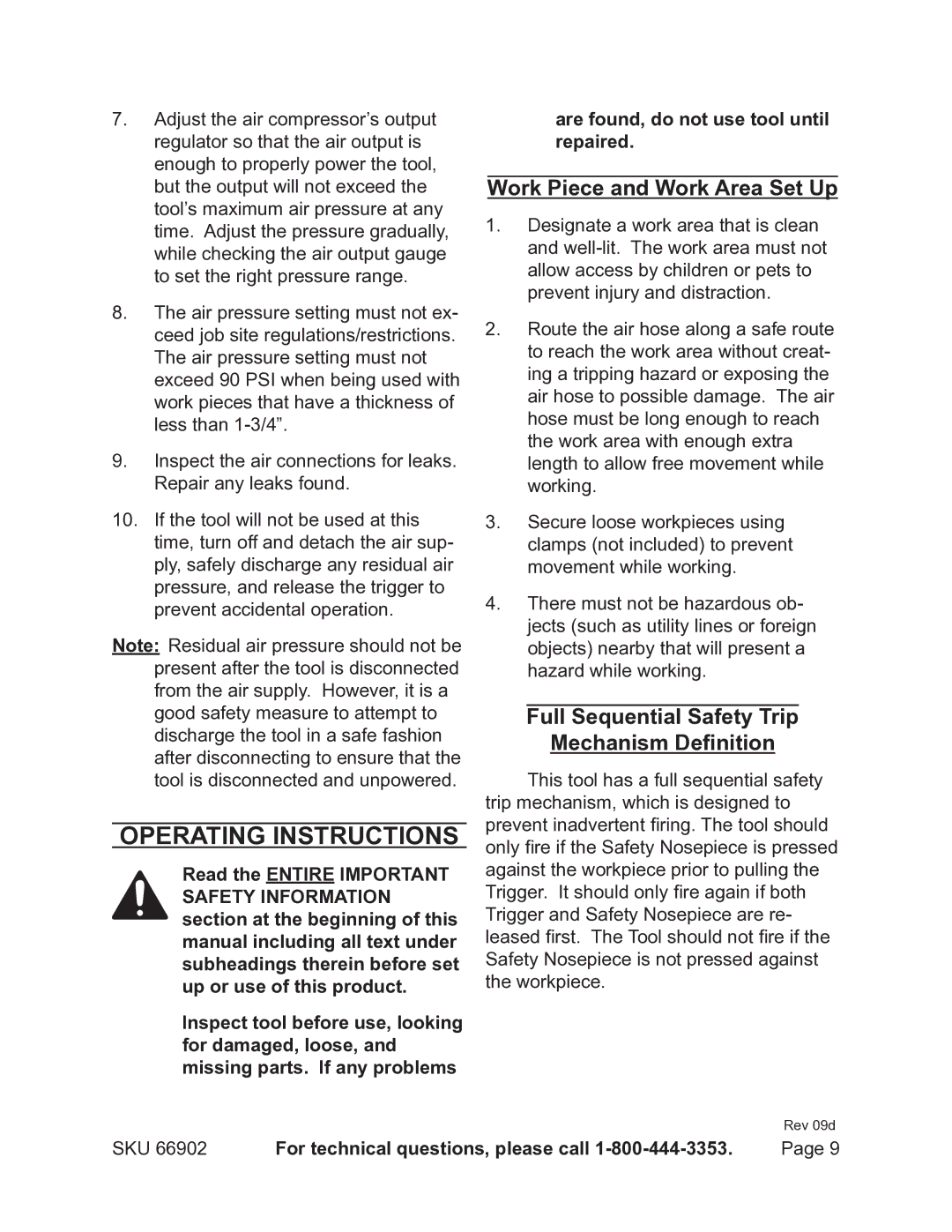
7.Adjust the air compressor’s output regulator so that the air output is enough to properly power the tool, but the output will not exceed the tool’s maximum air pressure at any time. Adjust the pressure gradually, while checking the air output gauge to set the right pressure range.
8.The air pressure setting must not ex- ceed job site regulations/restrictions.
The air pressure setting must not exceed 90 PSI when being used with work pieces that have a thickness of less than
9.Inspect the air connections for leaks. Repair any leaks found.
10.If the tool will not be used at this time, turn off and detach the air sup- ply, safely discharge any residual air pressure, and release the trigger to prevent accidental operation.
Note: Residual air pressure should not be present after the tool is disconnected from the air supply. However, it is a good safety measure to attempt to discharge the tool in a safe fashion after disconnecting to ensure that the tool is disconnected and unpowered.
Operating Instructions
Read the entire Important Safety Information section at the beginning of this manual including all text under subheadings therein before set up or use of this product.
Inspect tool before use, looking for damaged, loose, and missing parts. If any problems
are found, do not use tool until repaired.
Work Piece and Work Area Set Up
1.Designate a work area that is clean and
2.Route the air hose along a safe route to reach the work area without creat- ing a tripping hazard or exposing the air hose to possible damage. The air hose must be long enough to reach the work area with enough extra length to allow free movement while working.
3.Secure loose workpieces using clamps (not included) to prevent movement while working.
4.There must not be hazardous ob- jects (such as utility lines or foreign objects) nearby that will present a hazard while working.
Full Sequential Safety Trip
Mechanism Definition
This tool has a full sequential safety trip mechanism, which is designed to prevent inadvertent firing. The tool should only fire if the Safety Nosepiece is pressed against the workpiece prior to pulling the Trigger. It should only fire again if both Trigger and Safety Nosepiece are re- leased first. The Tool should not fire if the Safety Nosepiece is not pressed against the workpiece.
Rev 09d
SKU 66902 | For technical questions, please call | Page 9 |
